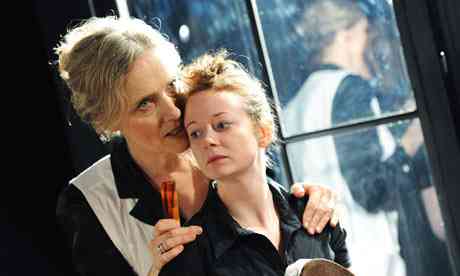
Playing governing body ...? Small spaces such as the Arcola theatre, London, could be in risk from humanities process formed on large-scale fundraising. Photograph: Tristram Kenton
I"ve never met the shade enlightenment secretary, Jeremy Hunt. I"m certain he"s a decent, courteous chap. But his proposals for the arts, underneath a commonly accepted Tory government, leave me cold. They might see trustworthy on paper but they don"t mount up to close examination.
First, there is the small make a difference of history. In 1979, we had a identical situation. The incoming Tory humanities minister, Norman St John Stevas, was an transparent hold up of enlightenment who steadily betrothed that there would be "no candle-end economies in the arts." What followed in the Thatcher years was just that. Public appropriation of the humanities was theme to on-going cuts. Only in pre-election durations was new income unexpected found as a incorporate to the humanities community. Do we wish to go throuugh all that again? And is there any justification that Jeremy Hunt would lift any some-more poke inside a Cameron supervision than the fast marginalised St John Stevas did underneath Mrs Thatcher?
Secondly, there is the Hunt philosophy. What he seems to be arguing is that, whilst preserving the element of state funding, we should change progressively towards the American indication in that endowments and particular hospitality yield additional income. Charlotte Higgins nails the debility of the justification for endowments: excellent for big institutions, with their teams of fundraisers, but no make use of at all for small, struggling or initial organisations. Beware additionally of particular philanthropists. All the American justification suggests that there are far some-more strings trustworthy to in isolation than to open money. The Metropolitan Opera in New York, a scapegoat for inventive conservatism, used to rely heavily on a big donor who gave her income to productions that depended on lavish, chocolate-box glamour. Do we severely wish to go down that path?
Hunt even hedges his bets on open appropriation by observant that a impending Tory supervision doesn"t know "the state of the books." Obviously the destiny is uncertain: no one knows whether, or when, expansion will materialise. But there is a transparent preference in between a Keynsian joining to open spending and the mercantile tightening of the deficit-fetishists. I"m no economist, but I"d have thought that to cut humanities spending, that accounts for 0.07% of the supervision budget, would have no stroke whatsoever on the inhabitant debt. It could, however, blow lots of humanities organisations out of the water.
Hunt is not all bad: I sympathise with his enterprise to trim the bureaucracy of the Arts Council – though I goal there is no petty, politically encouraged urge to embankment the chair, Liz Forgan. But, in general, I fright Hunt is charity us a dodgy prospectus. I"m sure, personally, he loves the arts. But what I wish to listen to is a ardent counterclaim of state funding, an declaration that a new enlightenment apportion will have a chair at the tip table, and as big a joining to informal expansion and creation as to shoring up the determined institutions. I don"t get any of that from Hunt.
No comments:
Post a Comment